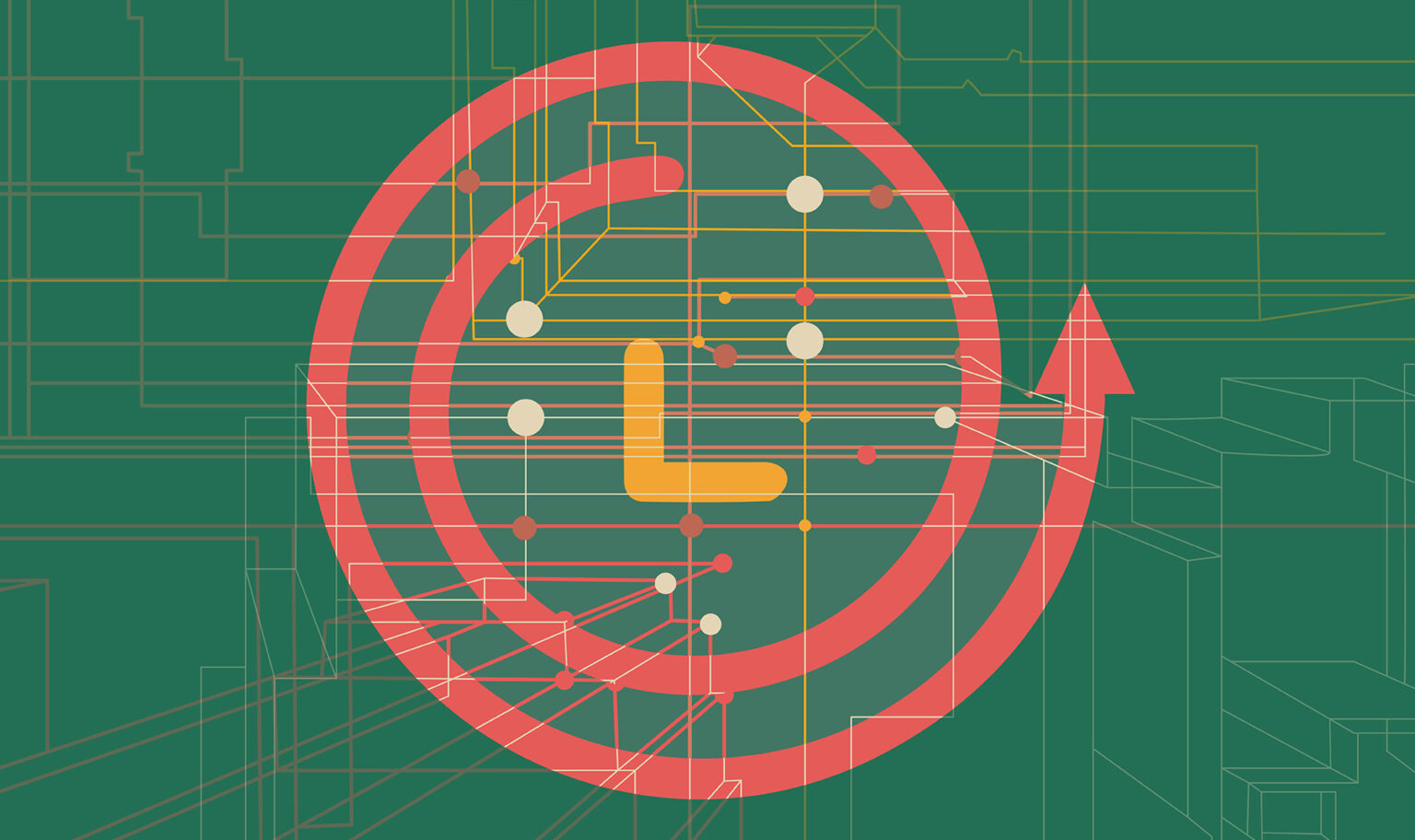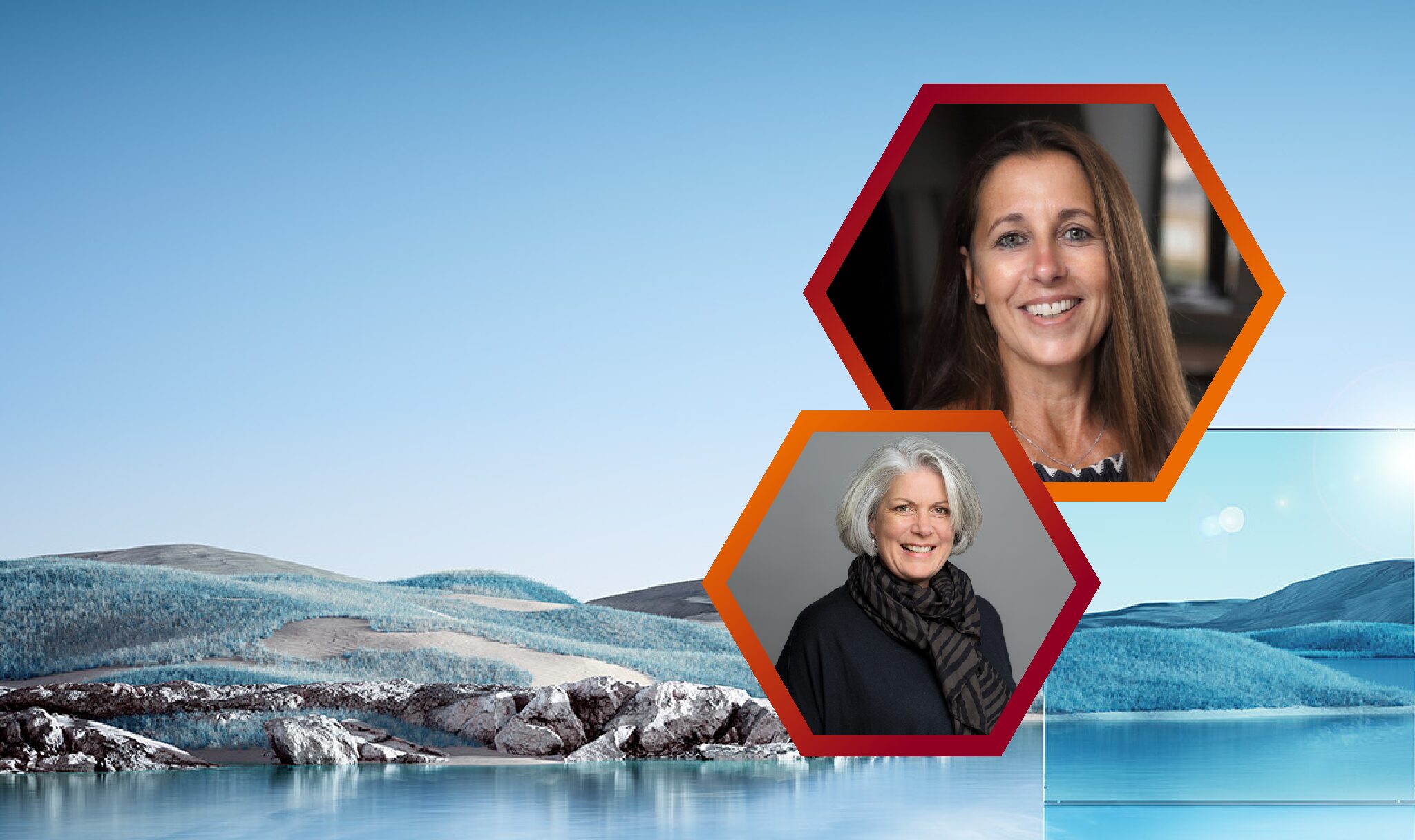Virtual event: 26th August 2020
How has the DNA of our organisations been altered in recent months? And how will it evolve to support a super-resilient business model that can thrive in times of uncertainty? During our virtual event our panel members discussed practical actions that organisations can take now.
Panel:
- Ade McCormack – Former FT opinion columnist, keynote speaker, digital strategist and near-futurist
- Maureen Wedderburn – SVP GMS IT at GlaxoSmithKline
- Markus Ruetimann – Former COO of Schroders, Commissioner of the Jersey Financial Services Commission and Chair of Aprexo and Global Prime Partners
- Scott Morrison – Former Marketing & Commercial Director at Diesel, keynote speaker and founder of the Boom! Operating System
Host: Kersty Bletso, Partner, Interim Management, Technology, Digital & Innovation Practice
From shareholder capitalism to stakeholder capitalism
Before the crisis, a build-up of uncertainty and unpredictability was already present. However, it was expected that macro-economic forces including digital technology, not a biological force, would bring about the accelerated change we’re experiencing now. According to one panellist, COVID-19 can be viewed as the unofficial closing ceremony of the industrial era. Until recently we still worked within the confines of an ‘arthritic factory-based system’. The crisis has brought about the realisation that there is a need to change business models.
“We were already seeing a build up of uncertainty and unpredictability. I certainly didn’t see the tsunami being biological in nature. I presumed it would be a collection of macroeconomic forces of which digital technology would be the primary driver.”
– Ade McCormack
The evolution is from the ‘factory model’ where people are cogs in a machine to something more akin to a “situationally aware living organism that senses its way around the environment and in which the ‘cog’ workers become ‘cognitive’ workers”. Cognition and cognitive bandwidth are now key assets for the organisation. By focusing on building these assets, rather than profit, organisations can build up resilience against an uncertain future.
Organisational DNA has already been altered by the crisis
The world of work, workers and leadership is changing radically. Culture and the nature of risk have experienced massive shifts in recent months. The crisis has been a catalyst for change that has manifested itself in different ways including:
- Keeping employees safe by moving immediately to remote working where possible. In doing so, quickly adapting new technology to support agile working and remote management. In environments where people needed to be at work, organisations had to act quickly to put safety measures in place.
- An unprecedented focus and pace. During the crisis, less important work was naturally deprioritised, and people felt empowered to make decisions where needed. A sense of urgency that has never been experienced before was felt across businesses, with partners and even with regulators. For GSK, whose teams are working on the COVID-19 vaccine, this urgency was felt acutely.
- A willingness for collaboration not just within organisations but across industries and including competitors. For example, GSK is working with 40 different companies to bring the COVID-19 vaccine to market. This required unparalleled collaboration with companies that were previously competitors.
There was a feeling amongst the panel that these attributes will shape how we will work in the future as they’ve already become embedded in the way we’re working today.
“There was an absolute unprecedented willingness for collaboration not just internally to GSK but across the industry. Collaboration where companies were previously competitors. I think we are currently working with more than 40 companies to bring the vaccine to market.”
-Maureen Wedderburn
The DNA of leaders is changing radically
Work and leadership have become more people orientated. Hierarchies have all but disappeared and employees have become more appreciative of one another and more empathetic towards individual situations as we juggle the realities of work and life. The change in working environment, such as the lack of a commute, has released new cognitive capacity for many and the panel noted more new ideas, increased innovation and a desire to do more interesting things. The way we manage has been forced to change too. Remote work has meant an end to presenteeism and managers are basing performance on outcomes, not activities.
Leaders have needed to become more collaborative, more situationally aware and more flexible in their approach to leadership. So what traits should leaders demonstrate to get the best out of their teams?
- A blend of IQ, EQ and DQ. DQ is the dignity quotient which has been less evident in the past. Leaders need to take responsibility for both the good and the bad.
- Flexibility and empathy. To nurture organisational culture and find ways of working smartly thorough changing and unpredictable circumstances.
- Communication. Giving employees time, tools and opportunity to communicate extensively.
- Erudite. Able to understand people from an emotional perspective, to communicate crisply and to encourage learning from each other.
As one panellist concluded, ‘organisation charts are now dead’ and that leaders will impress based on their agility and the personal attributes described. Leaders will need to be solution oriented, resilient, and able to engender trust.
Distilling a unique organisational culture
How are organisations maintaining their culture as a blend of remote and workplace-based working becomes the norm? Can we still be creative, collaborative and innovative when teams are distributed? As organisational hierarchies have broken down during COVID-19 how will people navigate around the organisation?
While it’s common practice for companies to have routine meetings virtually, it’s during physical meetings that we feed on each other’s energy, enthusiasm and spontaneity. This is a challenge for organisations as we adjust, and a blend of physical and remote working is needed. Technology is critical in enabling internal and external collaboration and in those companies that rapidly adopted new technology, it has already enabled groups to get together, to be nurtured as a team and supported them to solve problems at pace.
“Digital transformation is a beautiful word. People think it’s a project and a programme but it’s a new modus operandi, it’s a new culture, it’s a new balance between working life and office life, it’s a new balance between business and society. It will be talent and technology led.”
-Markus Ruetimann
Another challenge to culture is the onboarding of new employees. How do we get them up to speed and help them make the right connections? Those who were already established in the company before the crisis know who to connect with and how to get things done. This is challenging for people who are new especially since hierarchies have become flatter. The discussion about onboarding also raised questions about promotion cycles and criteria.
Whether physical or remote, companies need to create spaces for unconditional collaboration and unconditional innovation where ideas can be shared and filtered. Leaders need to inspire and empower people to translate ideas into actions. Teams are no longer restricted by traditional boundaries and in one organisation remote teams have gone viral with new members volunteering to join. Teams are growing and morphing and businesses can capitalise upon this through technology and the right leadership skills.
The changing nature of risk
From the Board through to line management, the profile of risk has changed. The main concern is for the future of governance and there is an increasing focus on enterprise risk. Cyber security has moved up the agenda as more remote work means more susceptibility. Process automation represents a high-risk area as teams typically work from a range of locations, some from home, some from the office which creates a major security challenge.
Boards will need to undergo frequents skills audits to ensure they’re bringing the right skills and capabilities to the table. The skills we have today won’t suffice for the future and increasingly skills around technology and data science will be required even at Board level.
Down the line there’s also a need to identify risks around poor management practices. There was concern amongst our panel about the ability to recognise issues such as bullying and harassment when working remotely, and new governance will need to be implemented. Policy and mechanisms need to be put in place to help employees spot issues. These will take the form of tools and guidelines, but employees also need to feel empowered so that they know what to look for. Do employees have the self-confidence to speak out if needed? There needs to be a framework in place so that employees know what to look for and how issues can be raised.
The role of the Board in developing resilience
The Board’s responsibility for the performance of a company, strategy and risk management will need to focus on new areas:
- Talent management. The Board will need to challenge, guide, support and ask critical questions about the talent pool that the organisation will need in the future. The education systems in some markets, including the UK, are not able to produce the talent that’s needed and so organisations will need to think differently about talent management.
- Brand and values. The Board will need to place more emphasis on brand recognition and internal values. Some brands have performed well during pandemic; some haven’t. Those businesses that have performed well already have culture and values baked into their DNA. Meanwhile, those that already had flaws in leadership and collaboration are crumbling.
- Wellbeing. The Board will need to have an increased focus on the wellbeing of the workforce, the wellbeing of their clients, and that of other stakeholders.
- Reporting procedures. There is a role for the Board in communicating with shareholders and investors about operating in the current environment. Traditional processes such as forecasting financial performance on a quarterly basis are difficult. The Board will be responsible for relaying to stakeholders that the organisation has the right mechanisms and the risk management practices in place to operate during time of uncertainty.
Baking diversity into organisational DNA
If organisations are to operate as living organisms, rather than as cogs in a factory machine, then biodiversity is critical. The panel agreed that diversity needs to extend beyond characteristics such as gender and ethnicity to incorporate diversity of thought. As one panel member said, “You can have a Board that looks diverse but if they all went to the same schools and universities then there is limited diversity there.”
Diversity of thought will enable businesses to adapt very quickly, to see different perspectives, to join dots in new and interesting ways. Different experiences and perspectives generate outputs that are fundamentally different. As examples, one panel member shared that he’d appointed a speedboat engineer as a Head of Change to bring an entirely different way of thinking to the table. He’d also appointed a Head of Operations from Formula 1 into a financial services organisation to bring a different perspective and approach.
Another panel member highlighted that businesses that already had collaboration, diversity of thought, global scope and empowered people are those that are thriving now. One of the challenges for businesses in recruitment is to move from recruiting based on skills to recruiting on based on traits such as agility and learnability which should also be an opportunity for more diverse hiring.
Creating a resilient business model
How do businesses create an operating system so that throughout chaos its leaders can be constantly be tweaking, relearning and thinking differently? One approach is a model of unblocking old ways of thinking, unlocking new inspiration, and unleashing action:
- Unblock: Businesses are great at generating ideas, but many don’t land properly because we don’t unblock old ways of thinking.
- Unlock: Look for solutions and join the dots in new ways. This might be repurposing ideas, incorporating thinking from other sectors, or creating things from scratch.
- Unleash: How do we create the future we want to see? This requires a learn fast culture (not a fail fast culture). Experiment, test, create hypotheses and move at pace.
Industries have been talking about digital transformation for many years, but the crisis has forced us into it in a way that has been welcome, said one panellist.
“We are great at unlocking loads of ideas, but we don’t often do the hard work of thinking about how we unblock the old ways of thinking and behaviours that don’t work. For example, we can’t apply old thinking about meetings and productivity to new technology.”
-Scott Morrison
If you’d like to discuss any of the challenges we covered during our event, please contact Kersty Bletso, Partner, Interim Management, Technology, Digital & Innovation Practice at Savannah Group.




